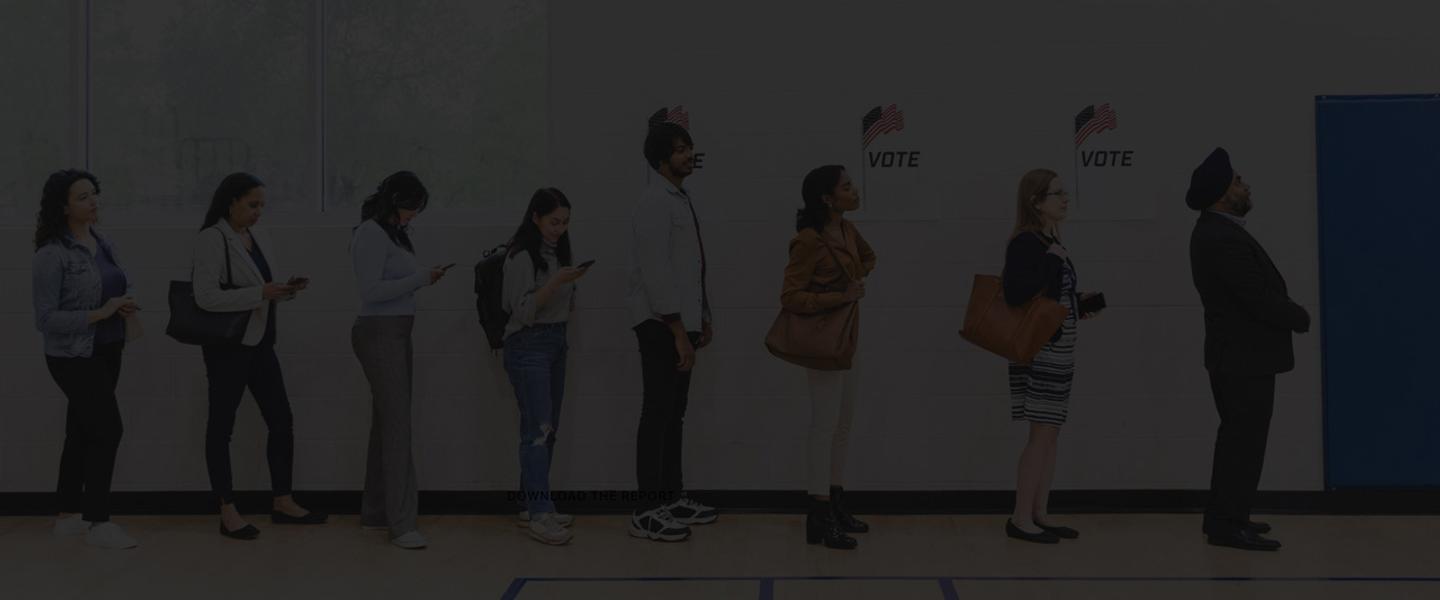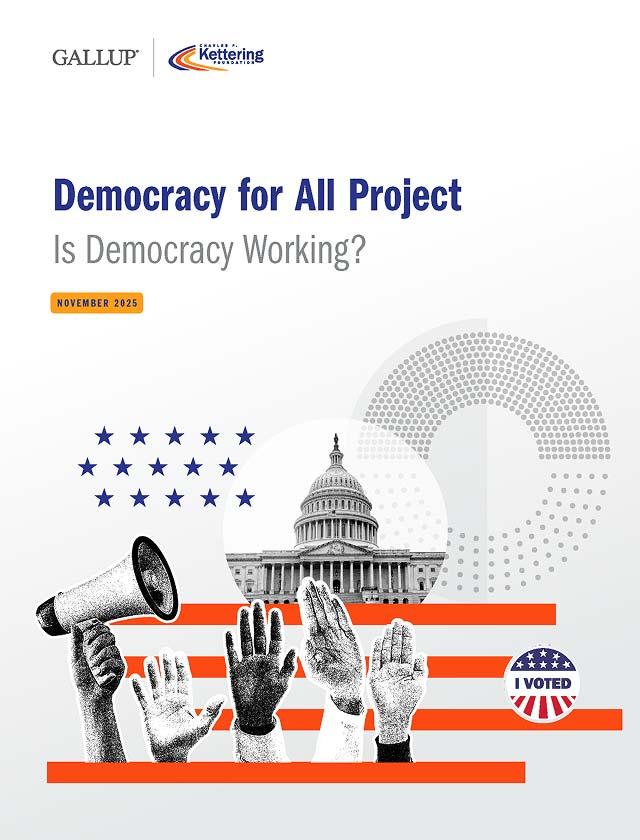
Democracy for All Project: Is Democracy Working?
The Charles F. Kettering Foundation and Gallup have launched the Democracy for All Project, a landmark national survey and research initiative exploring how Americans perceive and experience democracy. By amplifying voices from all backgrounds and examining perceptions of inclusion, fairness and opportunity, this project seeks to identify solutions to strengthen democratic engagement and bridge divides.
Is Democracy Working?
The Democracy for All Project, a partnership of the Kettering Foundation and Gallup, is the first in-depth, annual study of how Americans experience democracy today. The 2025 inaugural report, Is Democracy Working?, draws from the views of over 20,000 adults nationwide, with a special focus on inclusion, belonging and the voices of marginalized communities.
What Americans Are Saying
- 67% believe democracy is the best form of government.
- Most Americans strongly agree on key democratic values — free expression, diversity and compromise in government.
- Just 24% are satisfied with the way democracy is working in the U.S.
- 51% rate U.S. democracy as performing poorly or very poorly.
- Americans’ views of democracy closely reflect their finances, with younger, less-educated and less-connected people more pessimistic.

Focus on Inclusion
The study highlights significant divides by age, financial security and feelings of belonging. The project pays special attention to rural, low-income and marginalized communities, seeking solutions to strengthen engagement and bridge divides.
Why This Matters
As Kettering Foundation President Sharon L. Davies notes, “Democracy cannot be fully realized without the commitment and participation of all.” Gallup Chairman Jim Clifton adds, “Our promise is to provide the most accurate current trends of the state of American democracy, including a deeper understanding of its meaning, from the very voice of the citizens themselves.”
Sample & Methodology
Survey of 20,338 U.S. adults (July-August 2025).
Margin of sampling error: ±0.9 percentage points at the 95% confidence level.
Subscribe to Our Research
Sign up to receive email updates about our latest global analytics work, including insights from our survey research and polling around the world.

